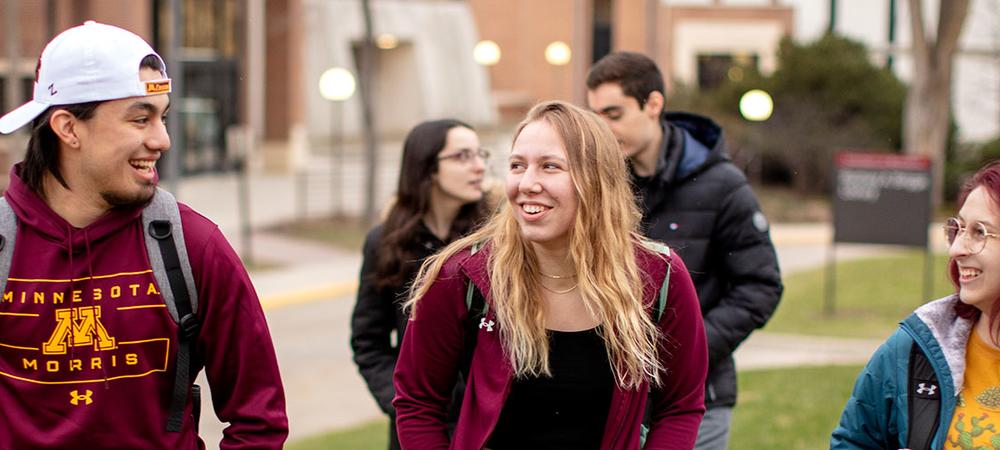
The primary purpose of assessment at UMN Morris is to improve student learning. Through the assessment process, we treat our teaching the way we would any other research program: we ask a question ("how effective are our current teaching methods?"); we collect and analyze data; we make decisions on the basis of that data ("let's introduce this concept earlier in the major"); and then we repeat the process ("how effective was introducing the concept in the introductory class?"). Assessment is an internal programmatic tool for continuous improvement, not an attempt to judge any program or individual. Assessment should be rigorous, but that does not mean it must be difficult or time-consuming. The data you gather should be helpful to you and your program. At its most basic, assessment of student learning requires setting learning goals for students and measuring student success at achieving those goals. Every academic program creates their own Program Student Learning Outcomes (PSLOs) to identify the goals of their major. Through academic programs, co-curricular programs, and the general education program, students are guided toward learning that is consistent with the goals stated in the campus mission and Campus Student Learning Outcomes (CSLOs).
Campus Mission Statement
The University of Minnesota Morris (UMM) provides a rigorous undergraduate liberal arts education, preparing its students to be global citizens who value and pursue intellectual growth, civic engagement, intercultural competence, and environmental stewardship. As a public land-grant institution, UMM is a center for education, culture, and research for the region, nation, and world. UMM is committed to outstanding teaching, dynamic learning, innovative faculty and student scholarship and creative activity, and public outreach. Our residential academic setting fosters collaboration, diversity, and a deep sense of community.
Campus Student Learning Outcomes
UMN Morris 21st Century Graduates are...
Career-ready Scholars
This category includes the following skills, knowledge, and attributes:
- Broad knowledge in multiple disciplines
- In-depth studies in a major
- Critical thinking and analysis
- Information literacy
- Technology literacy
- Oral/Written communication
- Career management
Creative Problem Solvers
This category includes the following skills, knowledge, and attributes:
- Flexible, multi-dimensional thinking (including knowledge in the Mathematics, Social Sciences, Sciences, Arts, and Humanities)
- Integrated learning
- Research skills
- Artistic expression
- Quantitative and qualitative literacy
Community Contributors
This category includes the following skills, knowledge, and attributes:
- Equity and inclusivity
- Global fluency
- Stewardship and sustainability
- Ethics
- Outreach
- Wellbeing
- Teamwork and collaboration
- Leadership
- Civic engagement